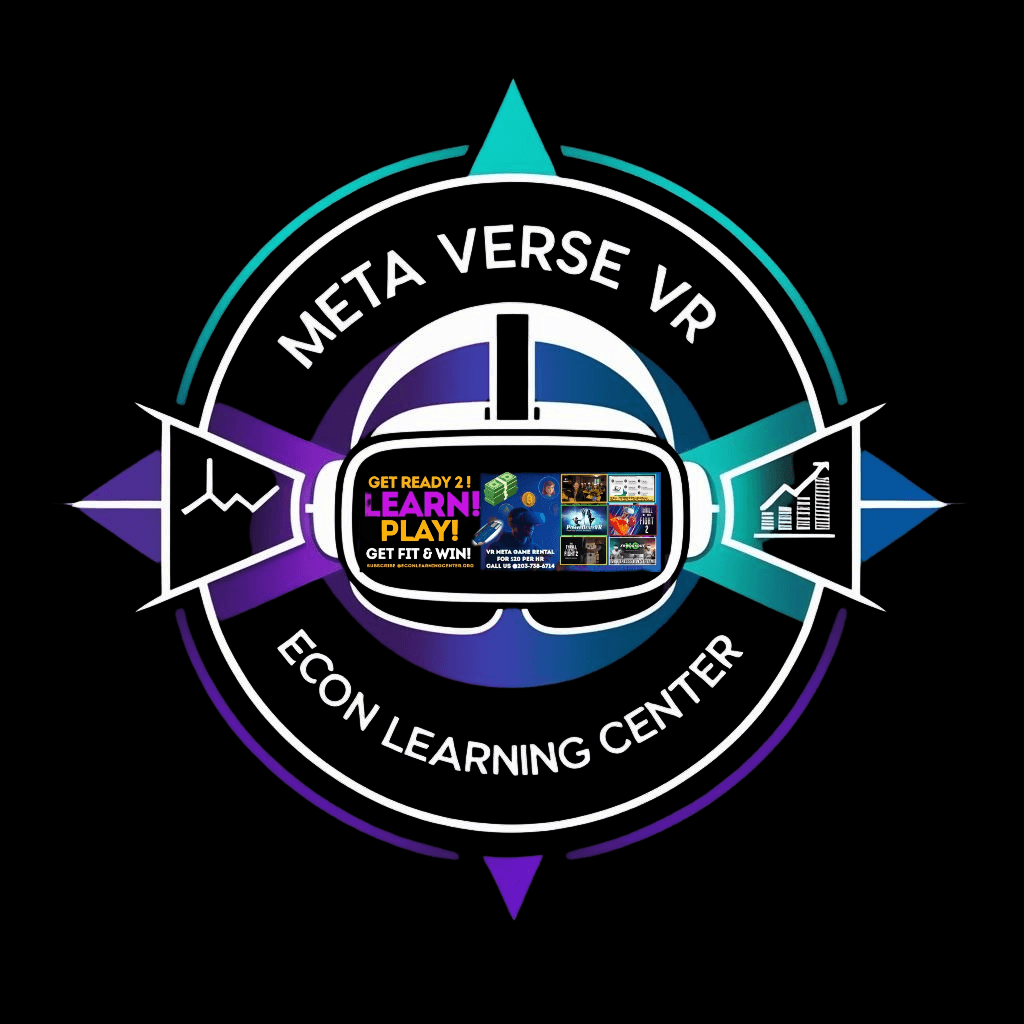- BOOK ME HERE
- About
- Giveaway Gift Rewards Contest
- ENROLL HERE
- Schedule For Our Personal Financial Development 1 Year Course
- The Challenge
- ELC SHOP CLUB
- Credit Repair and Financial Education Services
- Watch Our Business Presentation
- Contact
- FAQ
- Econ Learning Center Blog
- Terms of service
- Econ Learning Center Channel
- Credit Secrets Live Tv
- ELC Meta Verse Vr Fitness ED Games
How the Metaverse is Revolutionizing Financial Literacy for Kids and Adults
Understanding the Metaverse
The metaverse is a collective virtual shared space, created by the convergence of virtually enhanced physical reality and physically persistent virtual space. It includes virtual worlds, augmented reality, and the internet. This digital universe is transforming how we interact, work, and learn, providing unique opportunities to enhance financial literacy for both kids and adults.
The immersive nature of the metaverse allows users to experience financial concepts firsthand, making learning more engaging and effective. By leveraging virtual environments, financial education can become more accessible and interactive, breaking down complex topics into manageable and enjoyable experiences.

Interactive Learning for Kids
Traditionally, financial literacy for kids has been limited to basic concepts taught in schools or through parental guidance. However, the metaverse offers a revolutionary approach by creating interactive and gamified learning experiences. These virtual environments can simulate real-world financial scenarios, allowing kids to learn by doing.
For instance, children can participate in virtual games that teach them about budgeting, saving, and investing. They can manage virtual money, make decisions, and see the consequences of their actions in a safe and controlled setting. This hands-on approach not only makes learning fun but also helps kids retain information better.
Moreover, the metaverse can introduce children to more advanced financial concepts at an earlier age. Through engaging storytelling and interactive challenges, they can learn about topics such as credit, loans, and interest rates in a way that is easy to understand.

Empowering Adults with Financial Knowledge
Adults, too, can greatly benefit from the educational opportunities provided by the metaverse. Financial literacy is an ongoing journey, and many adults may find traditional methods of learning about finance to be dry or intimidating. The metaverse offers a fresh and engaging alternative.
Virtual seminars, workshops, and simulations can help adults grasp complex financial concepts. They can attend virtual classes on investing, retirement planning, and tax strategies, all from the comfort of their own homes. The interactive nature of these sessions allows for real-time questions and personalized feedback, enhancing the learning experience.
Additionally, the metaverse can provide a platform for adults to practice financial decision-making without the risk of real-world consequences. For example, they can experiment with virtual stock trading, property investment, and business management, gaining valuable insights and confidence.

Bridging the Knowledge Gap
One of the significant advantages of the metaverse is its ability to bridge the financial knowledge gap across different demographics. Financial education can be tailored to suit the needs of various age groups, backgrounds, and learning styles, ensuring that everyone has the opportunity to improve their financial literacy.
The metaverse can also facilitate community-based learning. Users can join virtual groups and forums where they can share experiences, ask questions, and learn from each other. This sense of community can be particularly beneficial for those who may feel isolated or intimidated by traditional financial education methods.
Furthermore, the metaverse can provide access to financial education resources for individuals in remote or underserved areas. By eliminating geographical barriers, it ensures that everyone has the chance to improve their financial knowledge and skills.

The Future of Financial Literacy
As technology continues to evolve, the potential for the metaverse to revolutionize financial literacy is immense. The integration of artificial intelligence, machine learning, and data analytics can further enhance the personalized learning experience, adapting to the needs and progress of each user.
Financial institutions and educators are beginning to recognize the value of the metaverse in promoting financial literacy. By investing in virtual learning platforms and resources, they can reach a broader audience and make a significant impact on financial education.
In conclusion, the metaverse is poised to transform how we approach financial literacy for both kids and adults. Its immersive, interactive, and accessible nature makes it an ideal tool for teaching financial concepts, empowering individuals to make informed decisions and achieve financial well-being.
